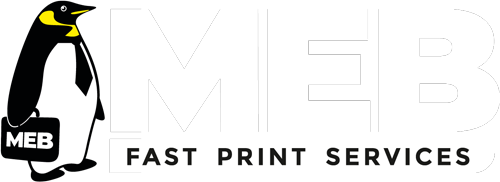We use cookies to make your experience better. To comply with the new e-Privacy directive, we need to ask for your consent to set the cookies. Learn more.

Pure Waste® and MEB - Shopping Clothes Responsibly
In this blog, we talk about Pure Waste Textiles Ltd, which produces recycled clothes, what they say about the purpose of their operation, what their production process includes and how they monitor the implementation of standards throughout the production line, ensuring the validity of their certificates. Our blog also has many links to Pure Waste articles that are worth reading.
We also tell you how our own values match with Pure Waste Textiles Ltd and what services we offer in relation to Pure Waste products.
Pure Waste® as a Company
Pure Waste Textiles Ltd is a Finnish textile company operating since 2013, which uses recycled materials in its production. The company aims to push the textile industry towards sustainable change, for example through our consumption habits, and is therefore open to sharing knowledge to achieve its goals.
The company's production is located in India among other places, because the country is one of the largest producers of textiles, which creates a lot of cotton textile waste, Pure Waste Ltd's main raw material.
Responsibility in Buying Clothes
Pure Waste is facing a challenge. The textile industry is a self-feeding system, driven by the need for textiles as cheap as possible, which are also easily thrown away after a short period since they don’t last that long. This is made possible by the efficient and at the same time excessive production of short-lasting textiles.
If people valued their clothes and aimed for longevity with their choices and maintenance of their textiles, production would not have to be on its current scale, which would also save natural resources. As an example, the amount of water it takes to produce one t-shirt, from raw materials to the final product, is 2700 liters, which corresponds to one person's drinking water needs for 900 days.
The current state of the textile industry is mainly driven by consumer demand, not the other way around.
Pure Waste works in an exemplary way, because almost every stage of production involves responsibility, be it the environmentally friendly approaches in raw materials, and recycling, or production conditions for employees, but we will tell you more about this below.
Read more about the company’s promises in Responsibility.
Recycling Materials
As the name suggests, Pure Waste is made entirely of recycled materials, but where are they sourced from? The company says they’ve optimized the ratio of raw materials in their clothing to 60% recycled cotton and 40% polyester made from recycled plastics.
Polyester Plastic
Plastic ending up in nature and microplastics in our bodies have been the talk of the town lately and landfills are full of plastic, even though the technology to recycle it exists.
Pure Waste uses recycled PET plastic bottles to produce polyester, giving plastic a whole new life. Eliminating plastic entirely would be ideal, but recycling it effectively is the first step.
Cotton
In the world, 27.3 billion kilograms of cotton are produced for the fashion industry, of which 15% is wasted as textile waste. This is 4.1 billion kilos of fully usable cotton, which took a lot of water, energy and other resources to produce.
India is one of the largest and well-known textile manufacturers, and in the State of Tamil Nadu alone, where the Pure Waste factory is located, there are approximately 3,000 textile mills, each of which produces a large amount of cotton cutting waste. This waste goes to the Pure Waste factory for efficient utilization.
Other Resources
The production of Pure Waste textiles is ideal for sustainable development, as it consumes significantly less water and also produces less carbon dioxide emissions. The total energy consumption is also much lower than what is spent on new raw materials.
Recycling and saving resources is not only limited to textiles, the company reuses almost everything, including packaging materials from cardboard boxes to paper and plastic bags. Packaging materials are used efficiently, for example:
The products are not packed in individual plastic bags, but larger bags are used that can hold more products.
The company also reuses the cardboard boxes that arrive from the factory, which have already been recycled.
Read more about Pure Waste textiles’ recycling practices.
Maintenance and Reuse of Clothes
Pure Waste not only recycles its raw materials, but also uses timeless designs, so that the clothes do not go out of use, for example due to changes in fashion trends. As pieces of clothing, T-shirts and hoodies are practically always in fashion, which means that they can be worn until the end of their cycle.
Clothes are often thrown away when you see signs of wear and tear, and even a small hole gives a piece of clothing the sentence of being thrown away. Pure Waste encourages its customers to take good care of their clothes with detailed instructions, from washing habits to detergents and washing machine maintenance.
Clothes can only be maintained and repaired to a limited amount of times, and they will eventually reach the end of their cycle. That is why the company is committed to collecting clothing returned by customers, which will eventually be used again. The company even launched a product collection with the title ''Post Waste'', partially made from returned clothes.
Read more about Pure Waste Textiles’ 360º impact measures.
Production Conditions
The responsibility of textiles does not only apply to raw materials. Would our conscience be clear if we knew that behind the recycled textiles we buy is an unfair working environment?
The Pure Waste factory has two prestigious certificates of responsibility, both of which show that the company invests not only in other areas of responsibility but also in the well-being of its employees. Compliance with the standards is constantly monitored and Pure Waste representatives visit the factory regularly.
The standards do not only apply to the company's own factory, but also the activities of partners are monitored. Today, it is difficult to find production processes without unfair and environmentally harmful subcontractors, but Pure Waste is once again working as an example by ensuring the standards of the subcontractors' operations. Factories have, among other things, the following measures:
At the main factory, it has been ensured in terms of the architecture and operational methods that working during hot temperatures is humane.
The yarn supplier cooperates closely with regard to yarn traceability. The test laboratory ensures yarn quality and color uniformity.
The textile washing company prepares the textiles for delivery. The closed water circulation and cleaning system prevents chemicals and waste water ending up in nature.
Read more about Pure Waste’s production responsibility measures from their website.
Textile Printing from MEB
We at MEB can proudly state that we support the message of Pure Waste products, and that's why we sell them in our store and online. Pure Waste Textiles Ltd has already done the most work by producing responsible textiles and our task is to spread their supply through our own shop.
You can order Pure Waste products with wonderful prints, so you can express your own interests or participate in a trend, extending the wearability of a piece of clothing, and making it something unique and personal.
Even though we are a printing house, you can also buy Pure Waste products without your own textile prints since the most important thing is the message of these clothes. You can also bring your own textiles to be printed in the Pure Waste spirit, regardless of their origin!
Read more from our Pure Waste product pages and from textile printing.
Briefly
Pure Waste Textiles Ltd has earned its place among the most responsible companies. They reduce the resources used and recycle as much as possible, even beyond the product's cycle and many times over. The company also ensures the responsibility of its entire production chain, including subcontractors, even in terms of employee rights and well-being, and this can be proven with certificates.
MEB appreciates the work of Pure Waste Textiles Ltd and is proud to sell their products. In addition to these textiles, our printing house offers a printing service for smaller quantities, which makes using recycled clothes even more meaningful, and is not limited to the clothes we sell, but you can bring any piece of clothing to be printed.
(The figures and information in the text are based on publicly available information from 2024.)

 Flyers & Brochures
Flyers & Brochures  Walls & Beach Flags
Walls & Beach Flags  Gifts
Gifts  Packaging
Packaging  Weddings
Weddings  Events
Events  Trade show
Trade show  Offices
Offices